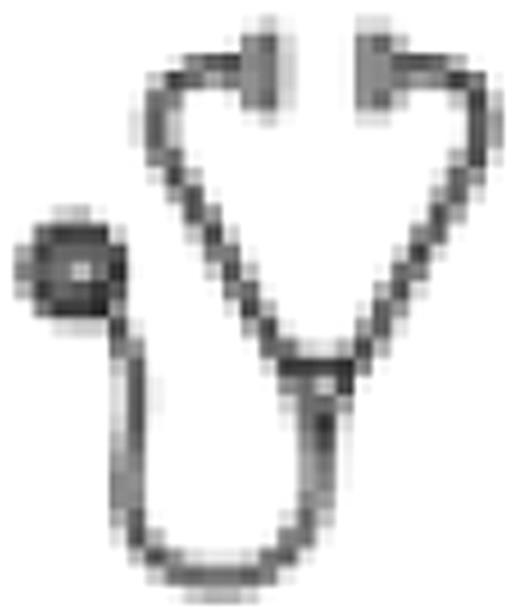Abstract
Abstract 283
Hodgkin lymphoma (HL) is characterized by the presence of CD30-positive Hodgkin Reed-Sternberg cells. The antibody-drug conjugate (ADC) brentuximab vedotin (SGN-35) delivers the highly potent antimicrotubule agent monomethyl auristatin E (MMAE) to CD30-positive malignant cells by binding specifically to CD30 on the cell surface and releasing MMAE inside the cell via lysosomal degradation. Binding of MMAE to tubulin disrupts the microtubule network within the cell, induces cell cycle arrest, and results in apoptotic death of the CD30-expressing tumor cell. In a previous phase 1 study with brentuximab vedotin dosing every third week, 11 of 12 patients (92%) treated at the maximum tolerated dose of 1.8 mg/kg had tumor reductions and 6 of 12 patients (50%) achieved an objective response (complete remission [CR] + partial remission [PR]).
A pivotal, phase 2, single-arm, multicenter study was conducted to evaluate the efficacy and safety of brentuximab vedotin in patients with relapsed or refractory HL post autologous stem cell transplant (ASCT). Brentuximab vedotin 1.8 mg/kg was administered every 3 weeks as a 30-minute outpatient IV infusion for up to 16 cycles of treatment. The primary endpoint was the overall objective response rate (ORR) as assessed by an independent review facility according to the Revised Response Criteria for Malignant Lymphoma (Cheson 2007).
A total of 102 patients with relapsed or refractory HL were treated at 26 study centers. Median age was 31 years (range 15–77) and approximately half of the patients were female (53%). Eastern Cooperative Oncology Group (ECOG) performance status at baseline was 0 (41%) or 1 (59%). All patients had previously received an ASCT and the median number of prior chemotherapy regimens was 4 (range 1–13). More than 70% of the patients had primary refractory disease, defined as failure to achieve a CR or progression within 3 months of completing frontline therapy. In addition, 39% of patients had lymphoma that was refractory to the most recent salvage therapy excluding ASCT. The median duration of brentuximab vedotin treatment on this study was 27 weeks (range 3–54) and the median number of cycles was 9 (range 1–16). The most common (>15%) treatment-related adverse events (AEs) of any grade were peripheral sensory neuropathy (43%), fatigue (40%), nausea (35%), neutropenia (19%), diarrhea (18%), and pyrexia (16%); most events were Grade 1 or 2. Grade 3 treatment-related AEs reported in >1 patient were neutropenia (14%), peripheral sensory neuropathy (5%), thrombocytopenia and hyperglycemia (3% each), and fatigue (2%). The only Grade 4 treatment-related events were neutropenia (4%), and thrombocytopenia, abdominal pain, and pulmonary embolism (1% each). No related Grade 5 events were observed. 18 patients discontinued treatment due to an AE. Consistent with findings from the phase 1 study, 97 patients (95%) had a reduction in tumor size per investigator assessment. Of the 35 patients who had B symptoms at baseline, 29 (83%) experienced resolution of these symptoms. The median time to B symptom resolution was 3 weeks (range <1–16 weeks). To date, 5 patients have received an allogeneic stem cell transplant as their first therapy after discontinuing treatment in the study; all of these patients remain in follow up. Per protocol, no interim analyses were planned for the primary endpoint of ORR by independent review. Independent assessment of ORR is being conducted and final efficacy results will be presented at the meeting.
Brentuximab vedotin was associated with manageable adverse events and, based on investigator assessment, demonstrated encouraging activity in heavily pretreated patients with relapsed or refractory HL. Tumor shrinkage was observed in 95% of patients and the B symptom resolution rate was 83%. Final results of the independent assessment of ORR, as well as duration of response, progression-free survival, and updated safety data, will be presented at the meeting.
Chen: Seattle Genetics, Inc.: Research Funding. Off Label Use: This clinical trial uses the investigational drug, brentuximab vedotin (SGN-35). Gopal:Seattle Genetics, Inc.: Research Funding. Smith:Seattle Genetics, Inc.: Research Funding. Ansell:Seattle Genetics, Inc.: Research Funding. Rosenblatt:Seattle Genetics, Inc.: Research Funding. Klasa:Seattle Genetics, Inc.: Research Funding. Connors:Seattle Genetics, Inc.: Research Funding. Engert:Seattle Genetics, Inc.: Membership on an entity's Board of Directors or advisory committees, Research Funding. Larsen:Seattle Genetics, Inc.: Employment, Equity Ownership. Kennedy:Seattle Genetics, Inc.: Employment, Equity Ownership. Sievers:Seattle Genetics, Inc.: Employment, Equity Ownership. Younes:Seattle Genetics, Inc.: Honoraria, Research Funding; Genentech: Honoraria, Research Funding; Novartis: Honoraria, Research Funding; SBIO: Honoraria, Research Funding.

This icon denotes an abstract that is clinically relevant.
Author notes
Asterisk with author names denotes non-ASH members.

This feature is available to Subscribers Only
Sign In or Create an Account Close Modal